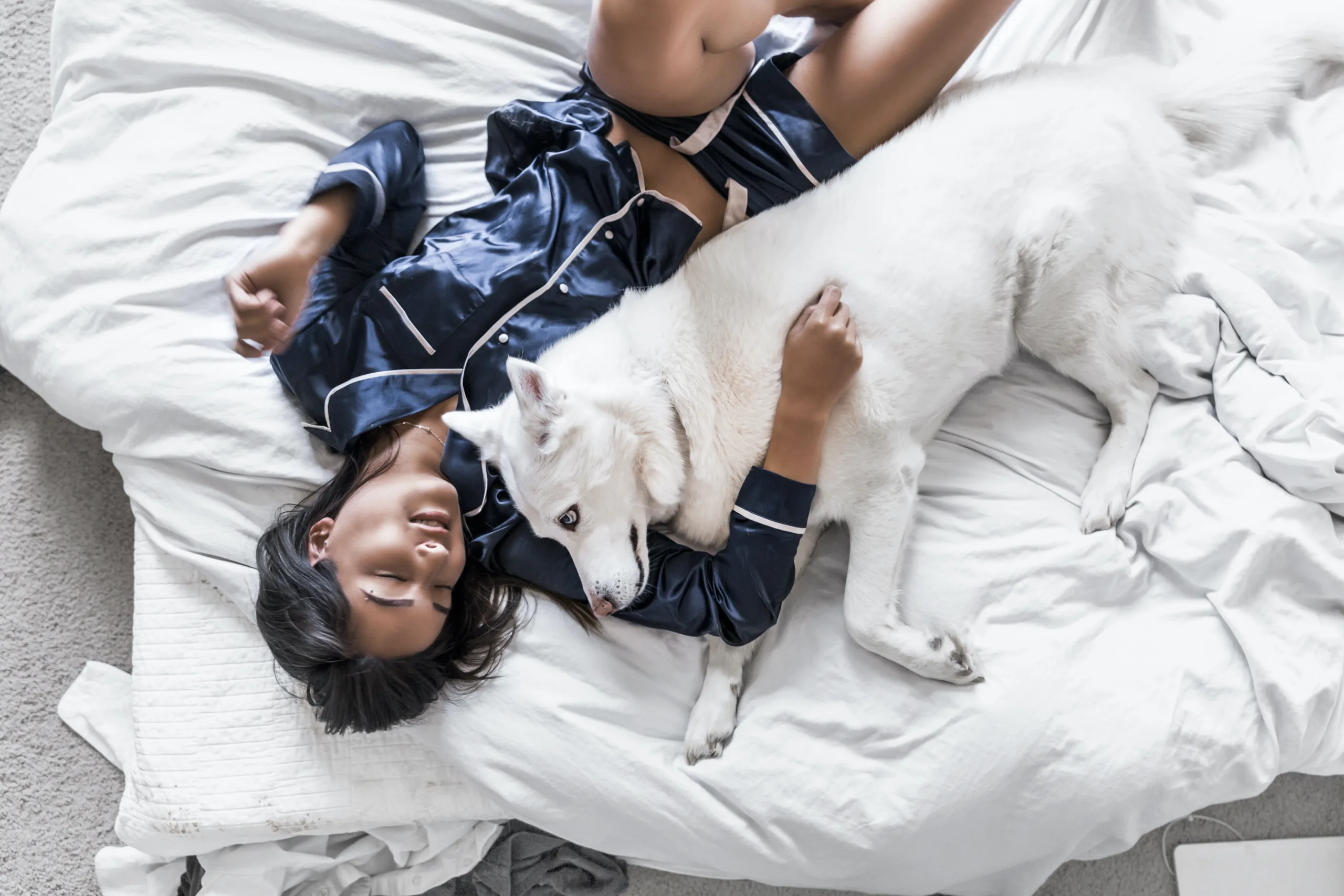Introduction
Why Do Dogs Like to Lay on You? Dogs and humans share a special bond that is built on trust, companionship, and mutual affection. One endearing behavior that many dog owners experience is when their canine companions choose to lay on them. Whether it’s on the couch, the bed, or even on the floor, this act of physical closeness has prompted curiosity and questions. In this article, we explore the reasons why dogs enjoy laying on their humans and the emotional significance behind this behavior.
For more about dogs click here
The Comfort of Proximity: A Natural Instinct
Dogs are naturally social animals with a history deeply intertwined with pack dynamics. In the wild, pack members would huddle together for warmth, protection, and a sense of belonging. This instinctual desire for proximity carries over to domestic dogs, as they seek comfort in being close to their human family members.
The Warmth and Security Factor
A human’s body radiates warmth, providing a cozy and inviting spot for a dog to rest. Dogs, especially those with short coats or during colder months, are drawn to the warmth that a human body offers. Additionally, being in close physical contact can provide dogs with a sense of security, akin to the warmth and comfort they experienced when they were part of a pack.
The Bonding Experience: Emotional Attachment
When a dog chooses to lay on you, it’s not just about physical comfort; it’s also a display of emotional attachment and trust. Dogs form strong emotional bonds with their humans, and being close to you brings them a sense of contentment and reassurance. Your scent, touch, and presence all contribute to the positive feelings they associate with laying on you.
Seeking Attention and Affection
Dogs are experts at understanding and responding to human cues. They recognize that laying on you often garners attention, petting, and affection. If your dog enjoys being scratched, petted, or talked to when they lay on you, they are likely seeking these interactions as well.
Pack Dynamics: A Reflection of Canine Society
In a dog’s eyes, the human family is akin to a pack. Just as dogs in a pack seek closeness and physical contact with one another, domestic dogs extend this behavior to their human “pack.” Laying on you reinforces the social bonds they share with you and fulfills their natural inclination for pack togetherness.
FAQs About Why Do Dogs Like to Lay on You?
1. What does it mean when a dog lays on you?
When a dog lays on you, it signifies their desire for physical closeness, warmth, and emotional connection. It’s a demonstration of their trust, affection, and sense of security around you.
2. Why is my dog obsessed with laying on me?
Your dog’s desire to lay on you stems from a combination of comfort, emotional attachment, and the positive experiences they associate with being close to you.
3. Do dogs sleep with the alpha human?
In a pack context, the alpha dog or human often occupies a central and secure spot. Dogs might choose to sleep close to the alpha human as a way to feel protected and bonded.
4. Why does my dog sleep up against me?
Sleeping up against you allows your dog to access your warmth, scent, and companionship. It reinforces their emotional bond and provides them with comfort.
5. Does my dog love me if they lay on me?
Yes, a dog laying on you is a strong indicator of their love and affection for you. It showcases their desire for physical and emotional closeness.
6. Does my dog know I love him?
Dogs are adept at picking up on human emotions and cues. They can sense your affection and love through your actions, tone of voice, and interactions.
Fostering the Connection: Quality Time and Care
To nurture the special connection with your dog and encourage their desire to lay on you:
- Spend quality time together through play, walks, and cuddles.
- Create comfortable and inviting spaces where your dog can rest.
- Maintain a consistent routine to establish a sense of security.
Conclusion on Why Do Dogs Like to Lay on You?
The act of a dog laying on you is a heartwarming display of their affection, trust, and desire for companionship. It harkens back to their natural instincts for warmth, security, and social bonding. Embracing this behavior allows you to strengthen the unique bond you share with your furry friend, creating a sense of mutual comfort and happiness.
Click here for more
